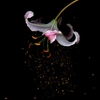Black-bellied seedcrackers have either small beaks (better for eating soft seeds) or large beaks (better for hard seeds). There are no seeds of intermediate hardness; therefore, which kind of selection acts on beak size in seedcrackers? View Available Hint (s)
Answers (1)
Know the Answer?
Not Sure About the Answer?
Find an answer to your question 👍 “Black-bellied seedcrackers have either small beaks (better for eating soft seeds) or large beaks (better for hard seeds). There are no ...” in 📗 Biology if the answers seem to be not correct or there’s no answer. Try a smart search to find answers to similar questions.
Search for Other Answers
You Might be Interested in
Why is it a problem in planter animals become endangered or extinct?
Answers (1)
How many dog years old is a puppy that was born 13 fortnights ago and a forthnight is 2 weeks
Answers (1)
Which of the following processes occurs inside the chloroplast of a plant cell? Choose ALL that are correct. (There will be multiple answers) Carbon dioxide is produced. Oxygen is produced. Sunlight is trapped. Glucose (sugar) is produced.
Answers (1)
Northern Switzerland has a fairly cold climate caused by sea winds from the Atlantic Ocean, but southern Switzerland tends to be much warmer and sunnier. What could cause the difference? A. The south is at much higher elevation B.
Answers (1)
Which of the stages of the water cycle were you able to observe in your model
Answers (1)
New Questions in Biology
What is the function of the nucleolus? *Subject was not below, but the subject is science.
Answers (1)
Which antiparkinson drug causes an increase in the levels of dopaminergic stimulation in the central nervous system and therefore allows a decreased dose of other medications?
Answers (1)
According to Herbert Kaufman, which of the following are reasons health care workers commonly resist change?
Answers (1)
Which of the following is an example of and std caused by a virus
Answers (2)
How are island archipelagos also called island arcs formed.
Answers (1)

